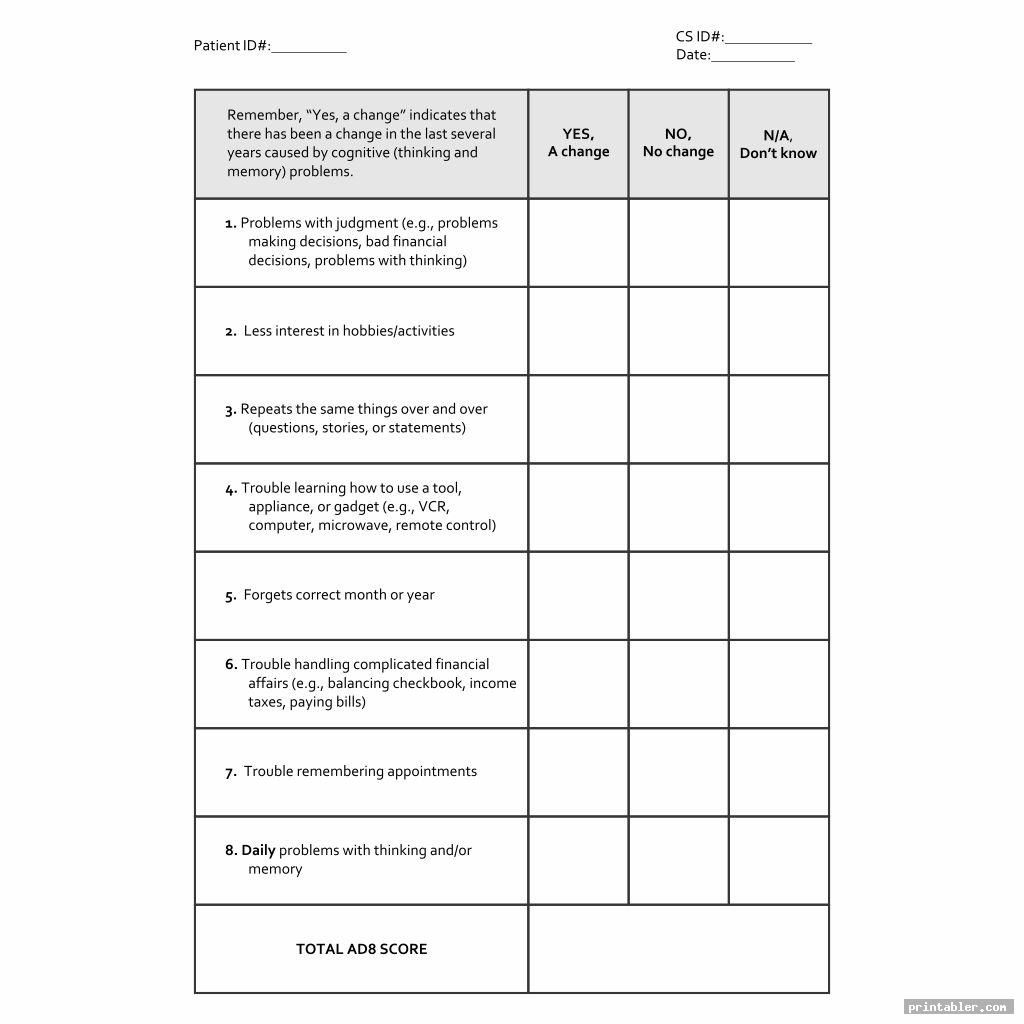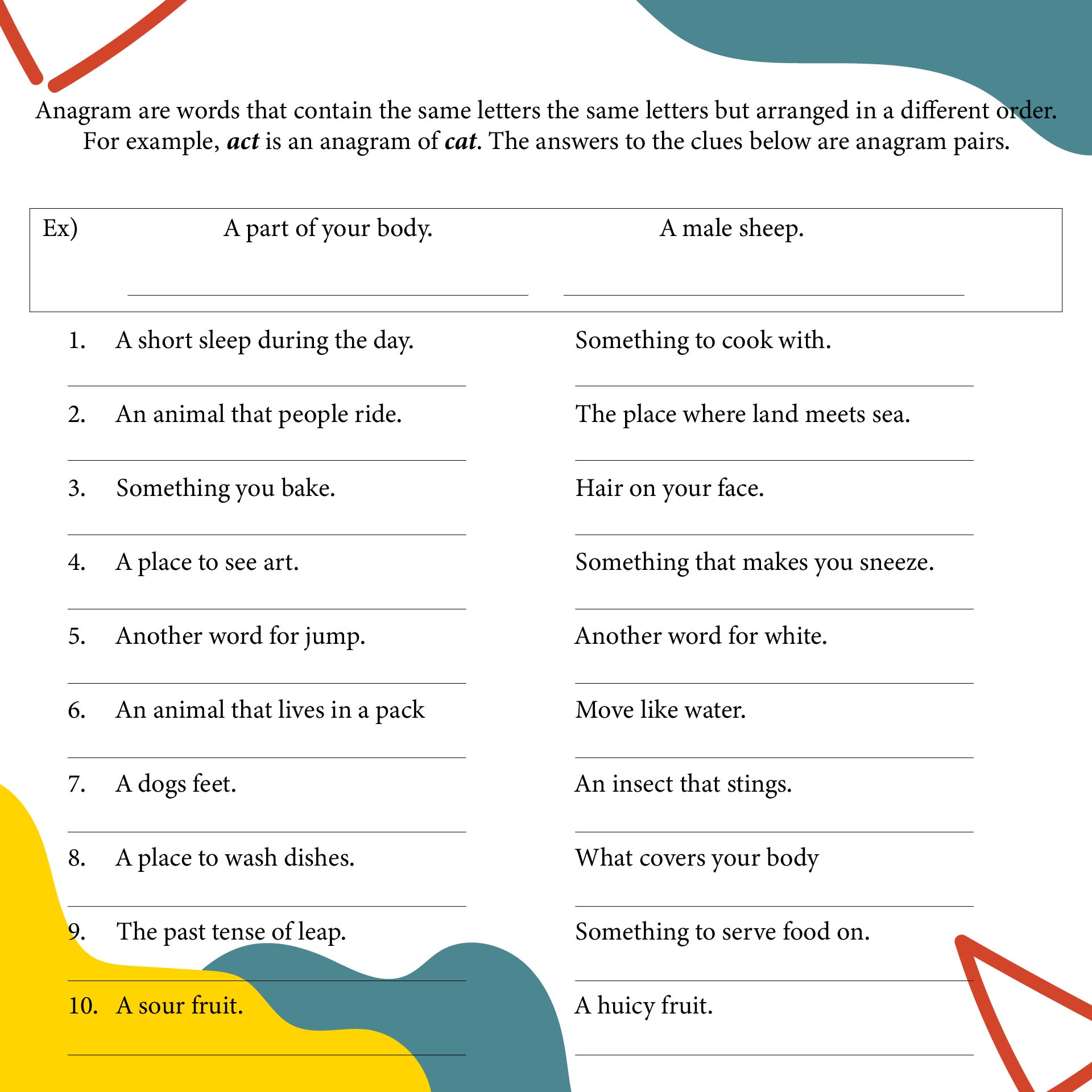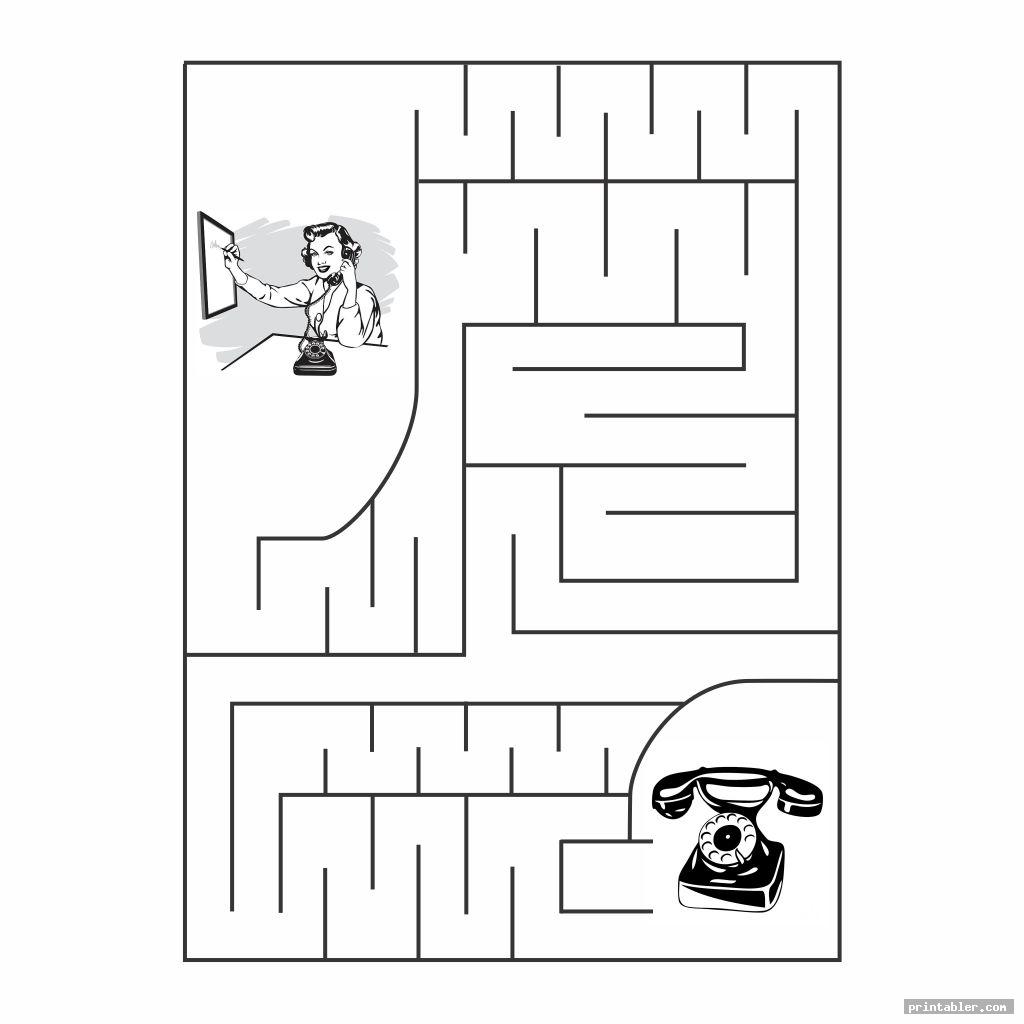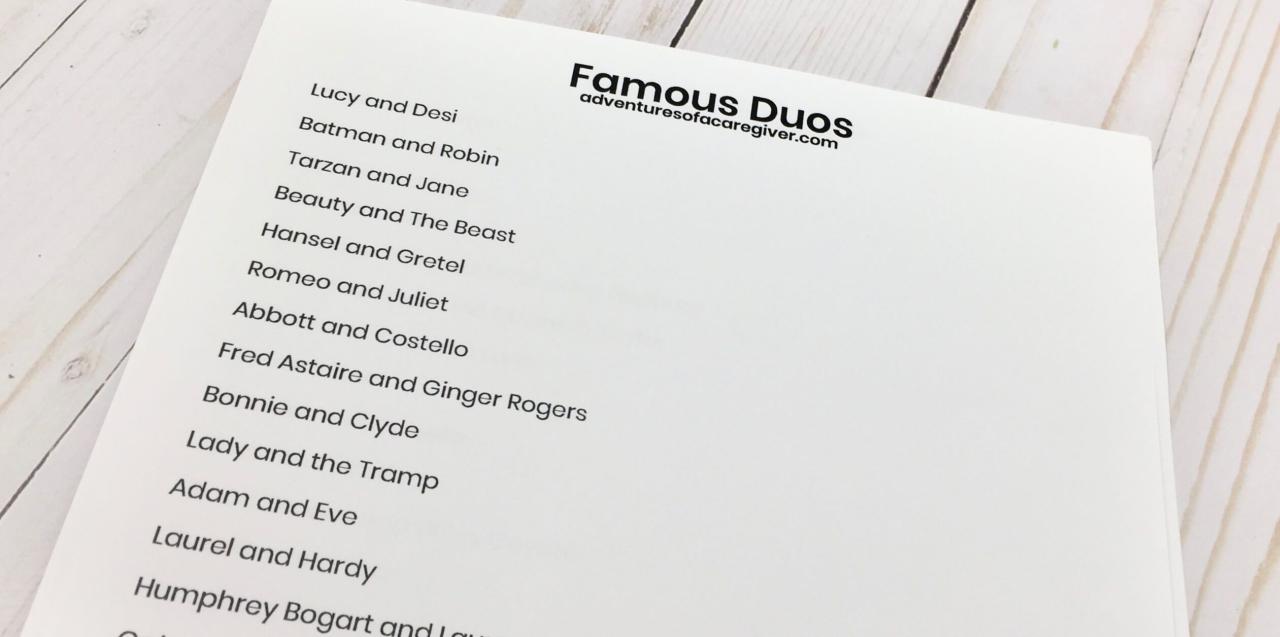Free printable activities for dementia patients offer engaging and effective solutions to enhance cognitive abilities, memory, communication, and social engagement.
Discover the benefits of printable activities and explore different types, design considerations, sensory stimulation, and suitable activities for different stages of dementia.
Benefits of Printable Activities for Dementia Patients

Printable activities provide numerous benefits for dementia patients, helping to improve their cognitive abilities, memory, and overall quality of life. These activities engage the mind and stimulate different areas of the brain, promoting mental acuity and maintaining cognitive function for as long as possible.Engaging
in printable activities can significantly improve cognitive abilities in dementia patients. These activities require problem-solving skills, memory recall, and attention to detail, which exercise and challenge the brain. By regularly participating in such activities, dementia patients can enhance their cognitive skills, slowing down the decline in cognitive function.Memory
is a common challenge for individuals with dementia, but printable activities can help in this aspect as well. Activities such as memory games, puzzles, and matching exercises can improve memory retention and retrieval. These activities encourage the brain to remember and recall information, strengthening memory pathways and potentially slowing down memory loss.Specific
printable activities have been proven beneficial for dementia patients. For example, coloring pages can help improve concentration and focus, as well as provide a calming and therapeutic effect. Crossword puzzles and word searches can enhance vocabulary, language skills, and memory recall.
Additionally, picture matching and sequencing activities can improve visual perception and spatial awareness.Printable activities also play a crucial role in enhancing communication and social engagement for dementia patients. Activities that involve interaction with others, such as group games or conversation starters, encourage socialization and create opportunities for meaningful connections.
These activities can help reduce feelings of isolation and loneliness, promoting a sense of belonging and well-being.In summary, printable activities offer a range of benefits for dementia patients. They enhance cognitive abilities, improve memory, provide mental stimulation, and foster social engagement.
Incorporating printable activities into daily routines can contribute to the overall well-being and quality of life for individuals living with dementia.
Types of Printable Activities for Dementia Patients

Printable activities for dementia patients can be a valuable tool in improving cognitive function, providing mental stimulation, and enhancing overall quality of life. It is important to choose activities that are engaging, enjoyable, and appropriate for the individual’s interests and abilities.
Here are some types of printable activities that are suitable for dementia patients:
Puzzles and Brain Teasers, Free printable activities for dementia patients
Engaging in puzzles and brain teasers can help improve memory, problem-solving skills, and concentration. Printable crossword puzzles, word searches, Sudoku, and matching games are great options for dementia patients. These activities can be adjusted to different difficulty levels to match the patient’s abilities.
Coloring Pages
Coloring can be a calming and therapeutic activity for dementia patients. Printable coloring pages with simple and familiar images can help reduce stress, improve focus, and encourage creativity. Choosing coloring pages that feature familiar objects or scenes from the patient’s past can evoke nostalgic memories and provide a sense of comfort.
Memory Games
Memory games are effective in improving cognitive function and memory recall. Printable memory games can include matching pairs of images, numbers, or words. These games can help stimulate the brain and enhance memory skills in dementia patients. It is important to start with a few pairs and gradually increase the difficulty level as the patient progresses.
Personalized Printable Activities
Creating personalized printable activities tailored to individual patients can have a significant impact on their engagement and enjoyment. This can include printing out old family photos and creating memory albums or personalized picture cards for reminiscence therapy. Personalized activities can evoke memories, spark conversations, and provide a sense of familiarity and connection.Incorporating
a variety of printable activities into a dementia patient’s daily routine can provide cognitive stimulation, promote social interaction, and enhance overall well-being. It is important to choose activities that are appropriate for the individual’s interests, abilities, and stage of dementia.
Regular engagement in these activities can help maintain cognitive function, improve mood, and enhance quality of life for dementia patients.
Are you looking for a first day of preschool printable to capture those precious moments? Look no further! We have a wide selection of printable templates that you can easily customize and print. Whether you want a simple design or something more elaborate, our collection has got you covered.
Just visit our website first day of preschool printable to browse through our options. Don’t forget to have fun and make memories on this special day!
Designing Effective Printable Activities for Dementia Patients

When designing printable activities for dementia patients, there are several key considerations to keep in mind. These considerations can help ensure that the activities are engaging, enjoyable, and appropriate for individuals with dementia.One important consideration is to use clear and simple instructions.
Dementia can affect a person’s ability to understand complex instructions or remember multiple steps. By using clear and simple language, you can make the activities more accessible and easier for individuals with dementia to engage with.Another consideration is the importance of using clear and simple fonts, colors, and layouts.
Choose fonts that are easy to read, such as Arial or Times New Roman, and avoid using decorative fonts that may be more difficult to decipher. Use high contrast colors, such as black text on a white background, to improve readability.
Keep the layout clean and uncluttered, with ample white space between elements.Here are some tips for selecting appropriate fonts, colors, and layouts for easy readability:
- Use a font size of at least 12pt to ensure that the text is large enough to read.
- Avoid using busy backgrounds or patterns that can be distracting.
- Use bold or underlined text to emphasize important information.
- Break up text into smaller sections or bullet points to make it easier to read and comprehend.
- Use images or icons to supplement the text and provide visual cues.
Now let’s look at some examples of printable activity designs that have been successful for dementia patients:
1. Word Search
Create a word search with large, bold letters and simple words. Use a clear layout with plenty of space between the letters and words.
2. Matching Game
Design a matching game with large pictures and simple pairs to match. Use high contrast colors to make the pairs easily distinguishable.
3. Coloring Pages
Create coloring pages with simple, large Artikels and clear sections to color. Use bold lines and high contrast colors to make it easier to stay within the lines.
4. Memory Game
Design a memory game with large, clear pictures and a simple grid layout. Use a limited number of cards to avoid overwhelming individuals with dementia.Remember, the goal is to create printable activities that are engaging, accessible, and enjoyable for individuals with dementia.
By considering the key design elements discussed above, you can create activities that are well-suited to the needs and abilities of dementia patients.
Incorporating Sensory Stimulation in Printable Activities for Dementia Patients

Printable activities for dementia patients offer numerous benefits in promoting cognitive stimulation and engagement. However, incorporating sensory elements into these activities can enhance their effectiveness even further, providing a multi-sensory experience that can be highly beneficial for individuals with dementia.
Sensory stimulation plays a crucial role in engaging individuals with dementia and promoting a sense of connection with their surroundings. By incorporating sensory elements in printable activities, we can tap into the power of sensory experiences to evoke memories, emotions, and create a more meaningful engagement for dementia patients.
Do you need a 12 inch ruler printable for your school or office? We have just what you’re looking for! Our printable rulers are perfect for measuring and drawing straight lines. Simply visit our website 12 inch ruler printable to download and print your own ruler.
Whether you prefer a colorful design or a simple black and white one, we’ve got you covered. Say goodbye to the hassle of searching for a ruler and get your printable ruler today!
Benefits of Incorporating Sensory Elements
When printable activities include sensory elements, they offer the following benefits:
- Enhanced engagement: Sensory stimulation can capture the attention of individuals with dementia, encouraging their active participation in the activity.
- Improved cognition: Engaging multiple senses can stimulate various areas of the brain, promoting cognitive function and memory recall.
- Emotional connection: Sensory experiences can evoke emotions and memories, fostering a sense of connection and well-being.
- Reduced agitation: Sensory stimulation has been shown to help reduce agitation and restlessness in individuals with dementia.
Ideas for Printable Activities with Sensory Elements
Here are some ideas for printable activities that engage multiple senses:
- Textured materials: Incorporate different textures, such as fabrics or textured paper, into printable activities. This can provide tactile stimulation and sensory exploration.
- Scented pages: Use scented markers or add scented materials, such as essential oil-infused papers, to create a sensory experience through smell.
- Audio elements: Include sound elements, such as recorded nature sounds or familiar songs, to provide auditory stimulation and evoke memories.
- Visual contrast: Use high-contrast colors or bold visuals to capture attention and stimulate visual perception.
- Movement activities: Incorporate activities that involve gentle movements, such as tracing lines or completing simple exercises, to engage the sense of touch and promote motor skills.
Sensory Stimulation and Memory Recall
Sensory stimulation can evoke memories and emotions in individuals with dementia by activating different areas of the brain associated with sensory processing and memory. The sensory experiences provided through printable activities can trigger associations with past experiences, leading to memory recall and a sense of familiarity.
Adapting Printable Activities for Sensory Impairments
It is important to adapt printable activities to accommodate sensory impairments that individuals with dementia may have. Consider the following:
- Visual impairments: Use high-contrast colors, large fonts, or incorporate tactile elements for individuals with visual impairments.
- Hearing impairments: Provide visual cues or written instructions alongside audio elements to ensure individuals with hearing impairments can fully participate.
- Tactile impairments: Adapt activities to be less reliant on touch, such as incorporating visual and auditory elements, for individuals with tactile impairments.
Printable Activities for Different Stages of Dementia
Dementia is a progressive condition that affects individuals differently as it advances. Therefore, the choice of printable activities for dementia patients may vary depending on the stage of the disease. Tailoring the activities to the specific stage of dementia can help maximize engagement and provide appropriate stimulation for the patients.
Activities for Early-Stage Dementia Patients
In the early stage of dementia, individuals may still have relatively intact cognitive abilities and can benefit from activities that promote mental stimulation. Here are some suitable printable activities for early-stage dementia patients:
- Word searches: These puzzles can help improve cognitive function and maintain language skills. Choose words related to familiar topics or interests of the individual.
- Simple puzzles: Jigsaw puzzles with fewer pieces or matching puzzles that involve matching pictures or shapes can help with visual perception and problem-solving skills.
- Coloring pages: Coloring can be a relaxing and therapeutic activity that promotes creativity and focus. Provide large, simple designs to make it easier for individuals to color.
- Picture matching: Create printable sheets with pairs of related pictures, such as animals or objects, for the individual to match. This activity can help with memory and concentration.
Activities for Middle-Stage Dementia Patients
As dementia progresses to the middle stage, individuals may experience more significant cognitive decline and require activities that focus on reminiscence and sensory stimulation. Here are some printable activity ideas for middle-stage dementia patients:
- Reminiscence activities: Create printable worksheets with pictures or prompts related to past events, such as famous landmarks, historical figures, or popular songs. This can help trigger memories and encourage conversation.
- Matching games: Design printable cards with pairs of related images or words for the individual to match. This activity can help improve memory and cognitive function.
- Sorting activities: Create printable sheets with categories, such as sorting pictures of different animals or objects into groups. This activity can help with categorization skills and mental organization.
- Simple quizzes: Design printable quizzes with multiple-choice questions about familiar topics or personal interests. This can promote mental engagement and memory recall.
Activities for Late-Stage Dementia Patients
In the late stage of dementia, individuals may have severe cognitive impairment and require activities that are sensory-based and focused on reminiscence and personal connections. Here are some considerations for printable activities for late-stage dementia patients:
- Sensory-based activities: Create printable sheets with textured materials or raised images that individuals can touch and feel. This can provide sensory stimulation and evoke memories.
- Personalized memory books: Design printable templates for creating personalized memory books by adding photos, names, and significant events. This activity can help individuals connect with their personal history and promote a sense of identity.
- Music therapy: Create printable sheets with lyrics to familiar songs or printable musical instruments that individuals can play along with. Music can have a soothing and therapeutic effect on individuals with dementia.
- Visual stimulation: Design printable sheets with large, high-contrast images or patterns that can capture the attention of individuals with late-stage dementia. This can provide visual stimulation and promote engagement.
Resources for Finding Free Printable Activities for Dementia Patients

Finding free printable activities for dementia patients can be a valuable way to engage and stimulate their cognitive abilities. Luckily, there are numerous websites and online platforms that offer a wide range of printable activities specifically designed for individuals with dementia.
However, it is important to verify the credibility and quality of these resources before using them. Here are some reputable websites and tips for finding and utilizing free printable activities for dementia patients.
Reputable Websites for Free Printable Activities
- Alzheimer’s Association: The Alzheimer’s Association website provides a variety of printable activities, including puzzles, coloring pages, and memory games, all tailored for individuals with dementia.
- Activities for Seniors: This website offers a collection of printable activities for seniors, including those with dementia. The activities range from word searches and crossword puzzles to coloring pages and trivia quizzes.
- Golden Carers: Golden Carers is a popular online platform that provides a wide array of printable activities for seniors, including dementia-friendly options. Their resources include memory games, sensory activities, and reminiscing prompts.
- Memory Jogging Puzzles: Memory Jogging Puzzles offers free printable activities specifically designed to enhance memory and cognitive skills in individuals with dementia. Their activities include puzzles, matching games, and picture cards.
Tips for Navigating and Searching for Printable Activities
- Use specific s: When searching for printable activities, use specific s related to the type of activity you are looking for, such as “dementia puzzles” or “memory games for seniors.” This will help you find relevant resources more efficiently.
- Explore different categories: Many websites categorize their printable activities based on the type of cognitive skill they target, such as memory, attention, or language. Explore these categories to find activities that address specific areas of cognitive stimulation.
- Consider the level of difficulty: Dementia patients may have varying levels of cognitive abilities. Look for printable activities that offer different levels of difficulty, allowing you to tailor the activities to the individual’s cognitive capacity.
Benefits of Joining Online Communities or Forums
Joining online communities or forums dedicated to dementia care can be beneficial when searching for printable activities. These communities provide a platform for individuals, caregivers, and professionals to share and discover new resources. By actively participating in these communities, you can gain insights from others’ experiences, find recommendations for printable activities, and contribute your own ideas and resources.Remember,
engaging individuals with dementia in stimulating activities is essential for their cognitive well-being. By utilizing reputable websites, following search tips, and joining online communities, you can find a wealth of free printable activities to enhance the quality of life for dementia patients.